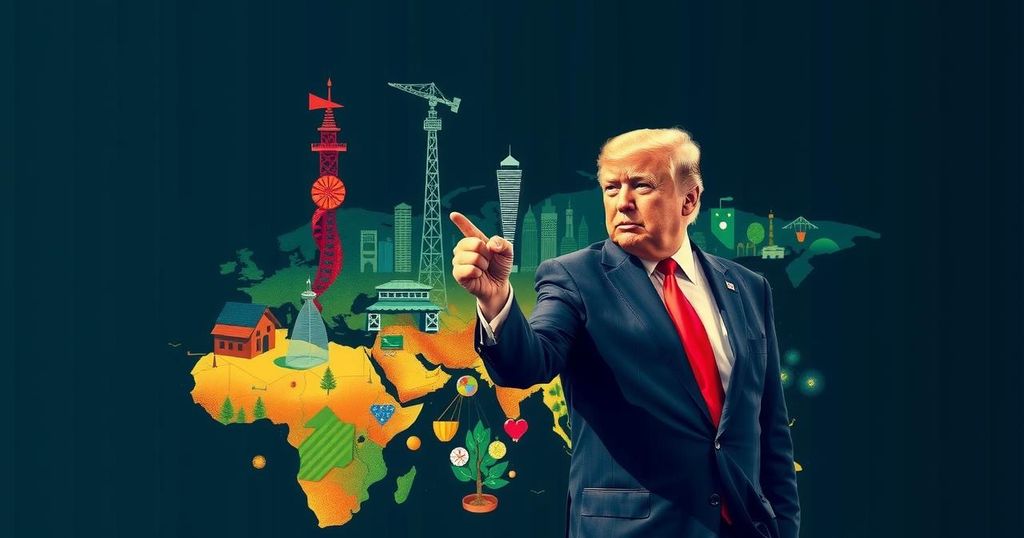With Donald Trump’s return to the presidency expected to pull the U.S. out of climate diplomacy, China is capitalizing on this shift to portray itself as a global climate leader. At COP29 in Azerbaijan, China adopted a conciliatory tone, revealing its climate financing contributions while resisting demands for donor reclassification. Experts argue this presents an opportunity for China to present itself as the more responsible party in international climate negotiations, especially amidst the anticipated decline in U.S.-China cooperation under Trump’s administration.
As Donald Trump resumes his presidency, withdrawing the United States from climate diplomacy, China is seizing the opportunity to present itself as a global climate leader. During COP29 climate talks in Azerbaijan, China exhibited a cooperative demeanor and revealed details of its international climate financing efforts, yet resisted Western pressure to change its classification as a donor. This strategic shift in tone contrasts with previous tensions seen in COP28, where collaborations occurred but are now anticipated to decline with Trump’s return, a scenario shaped by his skeptical stance on climate action and international cooperation. Experts suggest that with the U.S. under Trump, China can advance its position as a responsible global power. Belinda Schaepe from the Centre for Research on Energy and Clean Air in London indicated that Trump’s election could enable China to elevate its climate leadership credentials. However, substantial commitments such as ambitious emission reduction targets and future aid contributions will be vital for China to strengthen this narrative. Amid discussions in Baku, wealthier nations are urged to exceed their existing financial commitments to assist developing countries facing climate impacts. China remains adamant about avoiding a donor designation, which would require transparency in its climate financing activities, while revealing that it has contributed $24.5 billion to international climate finance since 2016. This revelation was acknowledged by Germany’s negotiator, Jennifer Morgan, who called attention to the need for accountability in reported actions. China’s climate policies are significantly motivated by national interests, as the country grapples with serious environmental issues. Moreover, it has risen to prominence in clean energy sectors, notably electric vehicles and solar power, which led to international tariffs imposed by the United States and the European Union. Looking ahead, experts predict that U.S.-China relations may experience heightened tensions, but some view a potential U.S. exit from the Paris Agreement as a chance for pragmatic climate negotiations to emerge. Scholar Li Shuo noted, “The politics will get worse before they get better,” signifying that if the U.S. retreats under Trump, it might inadvertently facilitate more flexible climate discussions for China.
The article discusses the implications of Donald Trump’s anticipated return to the presidency on climate diplomacy, particularly highlighting China’s strategy to assume a leadership role in global climate matters. The backdrop is set against the COP29 climate talks occurring in Azerbaijan, where China’s proactive approach stands in contrast to its historical stances in previous discussions. The narrative emphasizes the dynamics of international climate policy amid shifting U.S. political landscapes and the response of other nations, particularly China, to these changes in leadership.
In conclusion, as Donald Trump reenters the political arena, China’s maneuvering during the COP29 climate talks illustrates a strategic effort to position itself as the leading force in global climate governance. While Trump’s skepticism toward climate initiatives may hamper U.S. contributions to international forums, it simultaneously opens avenues for China to assert its influence. The article highlights the need for transparent commitments from China to solidify its role as a key player moving forward in the ongoing climate crisis.
Original Source: www.france24.com






